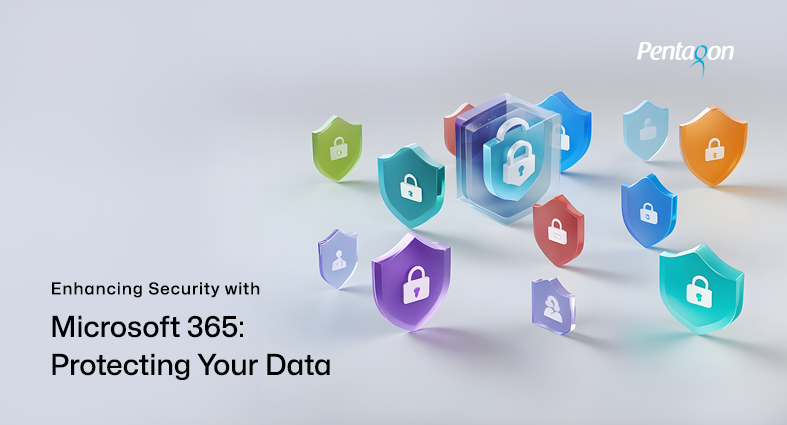The digital landscape has revolutionized how businesses operate and interact with their audiences. With websites serving as the forefront of these interactions, ensuring their security is not just a matter of protection; it’s a fundamental necessity. The importance of web hosting security cannot be overstated, as the implications of compromised websites extend far beyond technical inconveniences. From financial losses to tarnished reputations, the consequences of inadequate security measures can be severe. This is where web hosting services step in, providing a comprehensive suite of security features to safeguard your website and digital assets. Web hosting security stands as a virtual fortress guarding your website against a barrage of online threats. This comprehensive guide will delve into the pivotal role of web hosting security and the array of security features offered by web hosting services, empowering you with the knowledge to keep your website safe and secure.
Understanding Web Hosting Security
Web hosting security refers to the array of protective measures and strategies that website owners and web hosting providers employ to defend websites against cyber threats. Web hosting security encompasses a series of protective measures designed to safeguard your website from a spectrum of online vulnerabilities and attacks. From malicious hackers seeking unauthorized access to malware trying to infiltrate your code, websites are exposed to various security threats. These threats can disrupt website functionality, compromise sensitive data, and damage your brand reputation. As websites play a pivotal role in interacting with customers, making transactions, and disseminating information, any security breach can have dire consequences.
Common Security Threats Faced by Websites
Websites hosted online encounter a host of security threats that pose a constant challenge to their integrity and functionality. Among the most prevalent threats are:
- Malware Infections: Malicious software, or malware, is designed to compromise websites by injecting malicious code into their files. This can lead to unauthorized access, data theft, and the distribution of malware to visitors. Malware infections not only harm your website but also undermine user trust.
- Hacking Attempts: Cybercriminals may attempt to gain unauthorized access to your website’s backend systems, potentially manipulating or stealing data. Hackers exploit vulnerabilities in software or exploit weak passwords to gain entry, often leading to defacement or data breaches.
- Phishing Attacks: Phishing attacks involve deceiving users into revealing sensitive information, such as login credentials or financial details. Attackers create convincing fake websites that mimic legitimate ones to trick users into sharing their information.
- DDoS Attacks: Distributed Denial of Service (DDoS) attacks overwhelm a website’s server with a flood of traffic, rendering it inaccessible to users. These attacks disrupt normal operations and can lead to downtime, affecting user experience.
- Data Breaches: Data breaches involve unauthorized access to sensitive user information, often leading to the exposure of personal details, login credentials, and financial data. Data breaches not only harm users but also result in legal and financial repercussions for businesses.
- SQL Injection: SQL injection attacks exploit vulnerabilities in a website’s input fields to execute malicious SQL queries. This can lead to unauthorized access, data manipulation, or the extraction of sensitive information from databases.
- Cross-Site Scripting (XSS): XSS attacks inject malicious scripts into a website’s code, often targeting users’ browsers. These scripts can steal user information or redirect them to fraudulent websites.
- Brute Force Attacks: In a brute force attack, hackers use automated tools to systematically guess passwords until they find the correct one. This tactic exploits weak passwords and poses a significant threat to user accounts.
Essential Security Features Offered
Web hosting services play a pivotal role in maintaining the security of your website. These services offer a range of essential security features that work collectively to shield your website from various online threats and vulnerabilities. Understanding these security features is crucial for making informed decisions about your web hosting provider and ensuring the safety of your website’s data and functionality. Let’s delve into some of the key security features offered by web hosting services and explore how they contribute to the overall security posture of your website.
Firewalls
Firewalls serve as the first line of defense against unauthorized access and malicious traffic. These digital barriers analyze incoming and outgoing network traffic, allowing legitimate data to pass through while blocking potential threats. Web hosting services often integrate firewalls into their infrastructure to prevent unauthorized access to servers and protect websites from common hacking attempts. Different types of firewalls, including network-level firewalls and application-level firewalls, play unique roles in fortifying web hosting security. Network-level firewalls operate at the server level, monitoring traffic and filtering based on predefined rules. On the other hand, application-level firewalls focus on the specific software applications running on the server, examining data packets for signs of malicious activity. Implementing firewalls within web hosting services offers website owners an essential layer of protection against cyber threats.
Malware Scanners
Malware scanners are integral components of web hosting security, diligently scanning websites and server files for signs of malicious code or software. These scanners employ signature-based detection and heuristic analysis to identify known malware and potential threats, such as viruses, trojans, and malicious scripts. Regular malware scans are essential to detect and eliminate any malicious elements that may have infiltrated a website. Timely detection helps prevent further spread of malware and minimizes potential damage. Malware scanners can also offer real-time protection, continuously monitoring website files and alerting administrators to any suspicious activity. The implementation of malware scanners by web hosting services enhances security by ensuring websites are regularly scanned for potential threats. This proactive approach aids in maintaining a clean and secure online environment for both website owners and visitors.
DDoS Protection
Distributed Denial of Service (DDoS) attacks represent a significant threat to web hosting security, as they seek to overwhelm a website’s resources and render it inaccessible to legitimate users. DDoS attacks involve a multitude of compromised devices, collectively known as a botnet, that flood a target website with an excessive amount of traffic. Web hosting services often provide DDoS protection mechanisms to defend against these attacks. These defenses employ various techniques, such as traffic filtering and rate limiting, to detect and mitigate malicious traffic before it overwhelms a website’s infrastructure. DDoS protection is essential for maintaining website availability and preventing disruptions that can harm a business’s reputation and user experience.
Steps to Further Secure Your Website
While web hosting security features provide a strong foundation, website owners also play a pivotal role in enhancing security. Regular software updates are crucial to patching vulnerabilities that hackers might exploit, ensuring your website’s software remains resilient against emerging threats. Strong password policies bolster user access security, encouraging the creation of complex passwords and enforcing multi-factor authentication for an extra layer of protection. Data backups provide a safety net, enabling you to restore your website to a previous state in case of security breaches or data loss. SSL certificates ensure secure data transmission by encrypting sensitive information during its journey between the user’s browser and your server, contributing to a trustworthy browsing experience. Implementing additional measures can significantly bolster your website’s defense against cyber threats.
Regular Software Updates
Keeping software applications, content management systems (CMS), plugins, and scripts up to date is a fundamental aspect of web hosting security. Software developers often release updates that include patches for known vulnerabilities and security exploits. Failure to update these components leaves websites susceptible to attacks that exploit known weaknesses. To mitigate the risk of security breaches, website owners should regularly update their software to the latest versions. Additionally, selecting reputable plugins and themes from trusted sources can contribute to maintaining a secure website environment.
Strong Password Policies
Password security is a cornerstone of web hosting security. Strong and unique passwords serve as a formidable barrier against unauthorized access. Website owners and administrators should enforce password policies that require the use of complex passwords containing a combination of uppercase and lowercase letters, numbers, and special characters. Implementing multi-factor authentication (MFA) provides an additional layer of security by requiring users to provide multiple forms of verification before gaining access to sensitive areas of the website or server. MFA enhances user authentication and helps prevent unauthorized access, even if login credentials are compromised.
Data Encryption
Data encryption is a vital security measure that protects sensitive information from unauthorized access during transmission and storage. Secure Sockets Layer (SSL) certificates and Transport Layer Security (TLS) protocols encrypt data exchanged between a user’s browser and the website’s server, ensuring that data remains confidential and secure. Implementing SSL certificates and enabling HTTPS on your website is especially crucial for e-commerce websites and those that handle sensitive customer data. Visitors trust secure websites, and encrypted connections assure that their information is safeguarded.
SSL Certificates
SSL (Secure Sockets Layer) certificates are cryptographic protocols that encrypt data transmitted between a user’s browser and your website’s server. This encryption ensures that sensitive information, such as login credentials, personal details, and payment information, remains confidential during transmission. Implementing an SSL certificate on your website transforms the URL from “https://” to “https://,” signifying a secure connection. Additionally, modern web browsers display visual cues, such as a padlock icon, to indicate secure connections.
Choosing the Right Web Hosting Service
Selecting a reputable and secure web hosting provider is a pivotal step in ensuring the safety of your website. Research potential providers, read reviews, and assess their security features before making a decision. While all hosting services provide a level of security, not all are created equal. Factors such as the hosting provider’s reputation offered security features, and the type of hosting plan you select can significantly influence the security posture of your website.
- Reputation and Reviews: Research the reputation of the hosting provider by reading reviews and testimonials from other clients. Pay attention to feedback related to security features, responsiveness to security incidents, and overall customer satisfaction.
- Security Features: Investigate the security features offered by the hosting provider. A reliable provider should offer a suite of security tools and mechanisms, such as firewalls, malware scanning, intrusion detection, and DDoS protection.
- Uptime and Reliability: While not directly related to security, uptime, and reliability are critical factors. A hosting provider with consistent uptime ensures your website remains accessible to users, minimizing potential vulnerabilities arising from unexpected downtime.
- Customer Support: Responsive customer support is vital in times of security emergencies. Ensure that the hosting provider offers 24/7 customer support that can assist you in case of security incidents or technical issues.
- Updates and Patches: Inquire about the hosting provider’s approach to software updates and security patches. A proactive provider regularly updates server software to address known vulnerabilities.
- Data Centers: Learn about the hosting provider’s data centers’ physical security measures. Robust physical security, including access controls and surveillance, contributes to overall hosting security.
Conclusion
Web hosting security is an indispensable component of maintaining a safe and secure online presence. With cyber threats becoming more sophisticated, safeguarding your website requires a multifaceted approach that includes robust security features provided by web hosting services and proactive security practices. By leveraging firewalls, malware scanners, and DDoS protection mechanisms, website owners can significantly reduce the risk of security breaches and data compromises. In addition to the security features offered by hosting providers, website owners play a pivotal role in securing their websites. By regularly updating software, implementing strong passwords and user authentication, and prioritizing data encryption, website owners contribute to creating a secure online environment. Discover our top-notch web hosting services designed to safeguard your website against cyber threats and ensure unparalleled security. With features like robust firewalls, real-time malware scanning, and DDoS protection, your website will be in safe hands. Contact us to explore our security-focused hosting plans and take the first step towards a secure and worry-free online experience.
services
Feel free to send us a message.
Please, share your thoughts, and let's chat over a cup of tea.




















